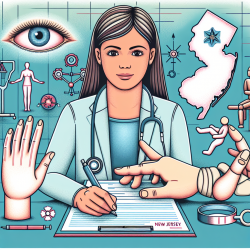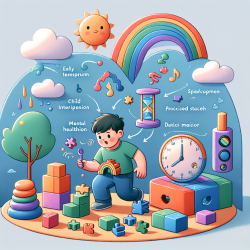The quest to enhance cognitive abilities in children has always been a fascinating journey. The recent study, "LearningRx Cognitive Training Effects in Children Ages 8–14: A Randomized Controlled Trial," published in Applied Cognitive Psychology, offers valuable insights into how targeted cognitive training can lead to significant improvements in various cognitive skills. As practitioners dedicated to creating optimal outcomes for children, understanding and implementing these findings can significantly enhance our practice.
Key Findings from the Study
The study involved a randomized controlled trial to assess the effects of a one-on-one cognitive training program on children aged 8–14. The training, delivered through the ThinkRx program, targeted multiple cognitive skills, including memory, visual and auditory processing, processing speed, reasoning, attention, and General Intellectual Ability (GIA). Here are the key outcomes:
- Statistically Significant Improvements: Children in the experimental group showed significant improvements in GIA, associative memory, visual processing, auditory processing, logic and reasoning, processing speed, and working memory compared to the control group.
- Generalized Cognitive Gains: The training led to broad improvements across various cognitive domains, suggesting that the skills learned were transferable to other areas.
- Enhanced Long-Term Memory: Notably, the greatest gains were observed in long-term memory, associative memory, and logic and reasoning.
Practical Implications for Practitioners
As practitioners, we can leverage these findings to enhance our therapeutic interventions. Here are some practical steps:
- Integrate Cognitive Training: Incorporate cognitive training programs like ThinkRx into your therapy sessions. These programs can be delivered online, making them accessible to a broader range of students.
- Focus on Generalization: Ensure that the cognitive skills targeted in training are applicable to real-world tasks. This can help children transfer their learning to academic and daily life activities.
- Monitor Progress: Use data-driven methods to track improvements in cognitive skills. Regular assessments can help in tailoring interventions to meet individual needs.
- Collaborate with Educators: Work closely with teachers and school staff to integrate cognitive training into the school curriculum. This can provide a holistic approach to child development.
Encouraging Further Research
While the study provides robust evidence of the benefits of cognitive training, there is still much to explore. Future research could focus on:
- Longitudinal Studies: Investigate the long-term effects of cognitive training on academic performance and social skills.
- Neuroimaging: Use neuroimaging techniques to understand the neural changes associated with cognitive training.
- Larger Sample Sizes: Conduct studies with larger and more diverse populations to validate the findings.
Conclusion
The "LearningRx Cognitive Training Effects in Children Ages 8–14: A Randomized Controlled Trial" offers compelling evidence that targeted cognitive training can significantly enhance various cognitive skills in children. As practitioners, integrating these findings into our practice can lead to better outcomes for the children we serve. By adopting data-driven methods and encouraging further research, we can continue to unlock the full potential of cognitive training.
To read the original research paper, please follow this link: LearningRx Cognitive Training Effects in Children Ages 8–14: A Randomized Controlled Trial.










